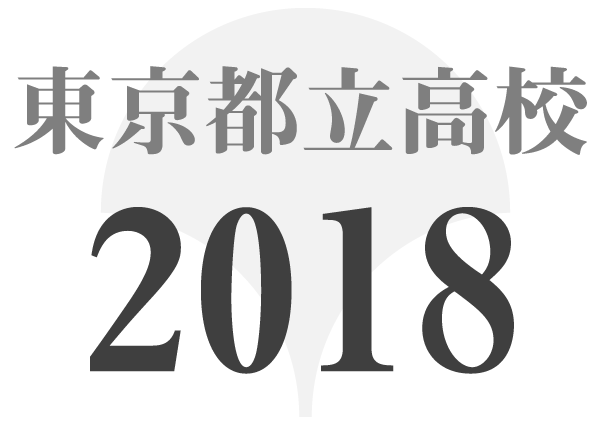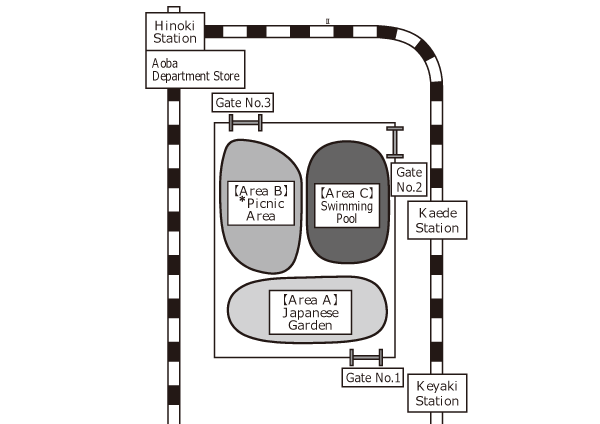次の文章を読んであとの各問に答えよ。
(*印の付いている単語・語句には本文のあとに〔注〕がある。)
Junko is a high school student in Tokyo. She likes English and wants to be an English-speaking travel guide in the future.
In April, Lucy, an English-speaking student from Canada, joined her class. Junko was happy about that.
Soon they became good friends. One day, Junko said to Lucy, “Shall we go to some popular places in Tokyo next Sunday with Yasuko, a friend of mine?” Lucy *happily agreed.
Junko got information about Asakusa and some other places, learned useful English words, and made a *schedule. She wanted to be a good guide for Lucy.
The next Sunday, in the morning, Junko visited Asakusa with Lucy and Yasuko. She took them from one place to another and explained things to Lucy at each place, such asits history.
Lucy was happy about that. That made Junko happy, too.In the afternoon, the three girls left Asakusa.
On the way to the next place, Lucy saw some young people from abroad in front of them. She was interested in the pieces of *miniature food that were *attached to their bags.
Then Lucy went to speak to them. She said, “Hello. Those are very cute.”One of them said, “We bought these at a food *replica shop over there.” Yasuko said, “Junko and Lucy, how about going there?”
Lucy agreed,but Junko said to Yasuko, “I have a schedule to visit other places. Visiting the shop is noton my schedule.” Yasuko said, “Junko, let’s go to the shop. I think Lucy will enjoy visiting it.” Junko *reluctantly agreed.
The three girls went into the food replica shop.
Lucy was surprised to see so many pieces of different miniature food. Then she found *full-sized food replicas.
She said, “Oh, these ones look *real!” Yasuko said, “Look! The *poster says we can make our ownfood replicas.” Lucy was surprised again.
Then a clerk said, “I’m sorry you can’t do that today. You need a *reservation. Making food replicas is very popular among visitors from abroad.” Lucy said, “I’m a little *disappointed that I can’t make one now, but I’m very happy that I came here. Thank you, Yasuko.” Junko had *mixed feelings.
She thought, “I didn’t put that shop on my schedule. I wanted to make a very good schedule,but I didn’t.”
After Junko got home, she told her older brother, Kazuo, about the visit.
He said, “You didn’t want to go to that shop at first, but you did. Why?”
“I hoped Lucy would enjoy the visit to the shop,”she answered.
He said, “Schedules are important, but it isalso important to be *flexible.
You don’t have to follow a schedule all the time.”
The next day, at school, Junko said to Yasuko, “I want to make a reservation to makefood replicas at the shop with Lucy.”
Yasuko happily agreed. Next, Junko told Lucy about the reservation. Lucy said she was happy.
Junko asked her, “Is there anything you want to do after doing that?”
Lucy answered, “I want to eat some real food.”
After Junkogot home, she made a reservation for making food replicas.
One Sunday in the next month,Junko took Lucy to the food replica shop with Yasuko.
They enjoyed making some food replicas there. Lucy was happy, and that made Junko happy.
In the shop, Lucy found food replicas of takoyaki, octopus dumplings, and said that she wanted to try eating real takoyaki. Junko asked her and Yasuko, “Shall we try real ones?” They happily agreed.
Yasuko said to Junko, “You have a schedule, right?”
Junko said, “Yes, but that is OK.” Junko’s schedule was for eating kara-age, deep-fried chicken, but she thought following Lucy’s *interest was more important.
Near a temple, they enjoyed takoyaki.
Yasuko said, “Junko, you are a perfect guide. You happily followed Lucy’s interest and made her happy.”
Junko was happy and realized that being flexible was as important as making a schedule.
〔注〕
happily 喜んで
schedule 計画
miniature 小型模型
attached to ~ ~に付けられた
replica 複製
reluctantly 渋々と
full-sized 原寸大の
real 本物の
poster ポスター
reservation 予約
disappointed がっかりした
mixed 複雑な
flexible 柔軟な
interest 興味
【設問1】
Junko was happy about that. の内容を次のように書き表すとすれば[ ]の中に下のどれを入れるのがよいか。
Junko was happy because .
ア Lucy became a good friend of hers after she came to her class
イ Lucy happily agreed to visit some places with Yasuko
ウ she had a new classmate who spoke English
エ she became a high school student in April
【設問2】
次のア~エの文を本文の内容の流れに沿って並べ記号で答えよ。
ア Junko had mixed feelings about the visit to the food replica shop.
イ Before visiting Asakusa, Junko learned useful English words and made a
schedule for the visit.
ウ Junko was happy that Lucy enjoyed making food replicas at the shop.
エ Lucy saw people who had miniature food attached to their bags and learned where she could buy some.
【設問3】
次の(1)~(3)の文を本文の内容と合うように完成するには[ ]の中にそれぞれ下のどれを入れるのがよいか。
(1) When Junko visited Asakusa with Lucy and Yasuko in the morning, [ ].
ア Lucy was happy that Junko explained things like the history of each place
イ Lucy was surprised to learn that Yasuko was a good friend of Junko’s
ウ Lucy was happy because Junko bought food replicas for her
エ Lucy saw some people from other countries in front of her
(2) Lucy was a little disappointed at the food replica shop because [ ].
ア visiting the shop was not on Junko’s schedule
イ Junko and Yasuko did not agree about going to the shop
ウ she wanted Junko to go to the shop, but Junko didn’t do that
エ she was not able to make a food replica without a reservation
(3) When Lucy agreed about trying eating real takoyaki after visiting the food replica shop for the second time, [ ].
ア Junko thought it was more important for her to follow Lucy’s interest than
her own schedule
イ Junko learned that it was popular to make real ones among visitors from
abroad
ウ Junko called a shop selling it to make a reservation to try it there
エ Junko was happy because trying it there was on her schedule
【設問4】
次の(1)、(2)の質問の答えとして適切なものはそれぞれ下のうちではどれか。
(1) What did Junko’s brother say about a schedule?
ア He said that making a schedule was more important than being flexible.
イ He said that Lucy had to put the food replica shop on a new schedule.
ウ He said that she didn’t have to follow a schedule all the time.
エ He said that she had to make a new schedule with Yasuko.
(2) What did Junko realize after she visited the food replica shop for the second time?
ア She realized that a perfect guide had to have more interest in real food than
food replicas.
イ She realized that both being flexible and making a schedule were important.
ウ She realized that many of the food replicas sold at the shop looked real.
エ She realized that getting information about history was very important.



質問と回答